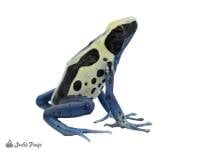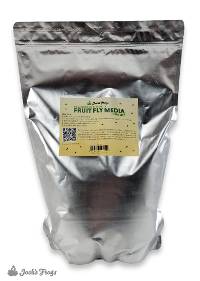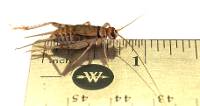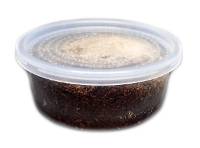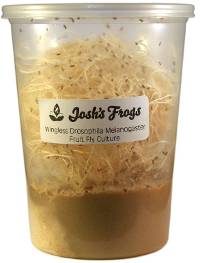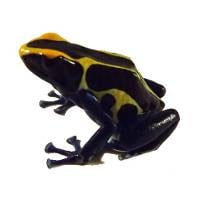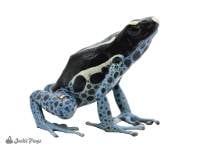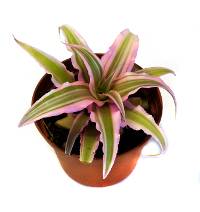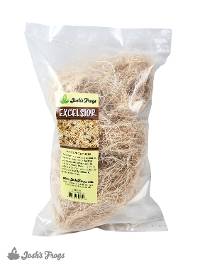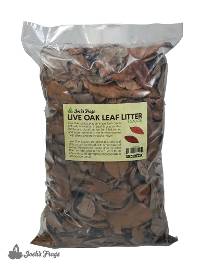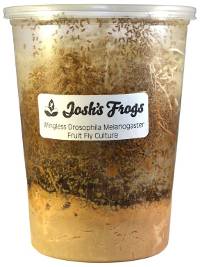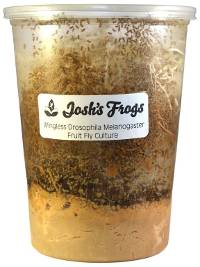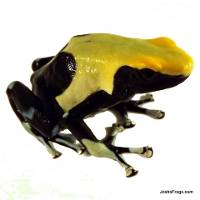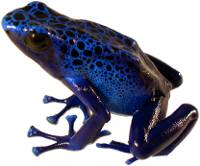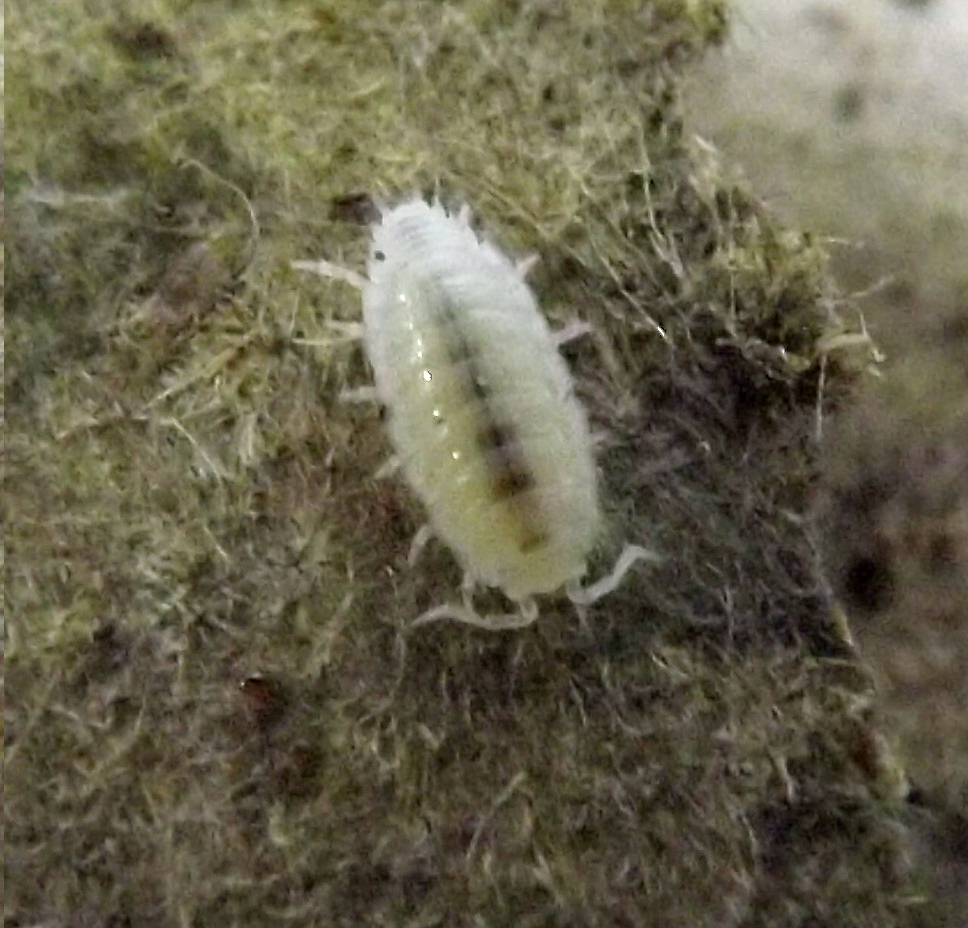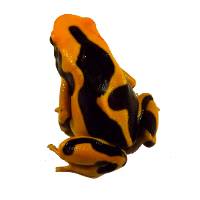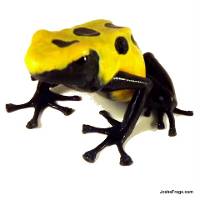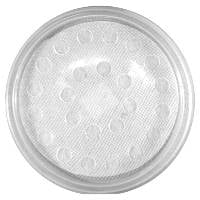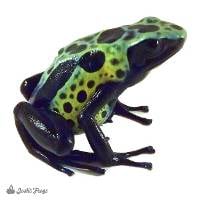Josh's Frogs
Dendrobates tinctorius 'True Sipaliwini' (Captive Bred) - Dyeing Poison Arrow Frog
Dendrobates tinctorius 'True Sipaliwini' (Captive Bred) - Dyeing Poison Arrow Frog
$49.99 0.0 out of 5 stars
(0)
0.0 out of 5 stars
(0)About This Product
Defining Characteristics:
- Uncommon in the hobby
- Yellow, blue, and black coloration coloration
- Bold
- Breeds seasonally, can be challenging
- Quiet call
- Large
- Can be kept in groups when young
- Best kept in pairs as adults
Name: Dendrobates tinctorius 'True Sipaliwini'. Commonly called the Dyeing Poison Dart Frog (based on an early belief that natives used brightly colored frogs to dye fabric). In the hobby, often referred to as True Sips or True Sipaliwini Tincs.
Recommended Vivarium Size: A 10 gallon aquarium is suitable for a single Dendrobates tinctorius 'True Sipaliwini', but Josh's Frogs recommends a 20H or 18x18x18 Vivarium for 1-3 frogs. Not sure how to set up a vivarium? Please watch our video on How to Set Up a Vivarium.
Temperature: They can tolerate a temperature range of 65 F to 80 F, but prefer temperatures in the low to mid 70s. Temperatures over 85F are dangerous.
Humidity: Like most poison dart frogs, True Sipaliwini prefer a humidity range of 70 – 100%, but can tolerate humidity down to 50% for short periods of time if the frogs have access to water. Low humidity levels, especially without access to water, can quickly be fatal.
Size: Adult female True Sipaliwini are larger, measuring in at approximately 2.25 inches. Male True Sipaliwini are a bit smaller, averaging about 1.75 inches at maturity. All of the Dendrobates tinctorius 'True Sipaliwini' froglets Josh's Frogs sells are well started juveniles, and measure approximately 5/8” long.
Age: The 'True Sipaliwini' is capable of living well over 20 years in captivity under ideal conditions, although a lifespan of 10 years is more common. In the wild, it is thought that they may live 4-6 years. All True Sipaliwini for sale at Josh's Frogs are well started juveniles, and are 2-3 months old. Many of our breeders are well over a decade in age, and show no sign of slowing down.
Feeding: Like most poison dart frogs, True Sipaliwini prefer smaller foods. All of the True Sipaliwini Josh's Frogs sells will readily eat Drosophila melanogaster fruit flies. Adult Dendrobates tinctorius 'True Sipaliwini' will readily consume Drosophila hydei fruit flies and pinhead crickets. All ages of poison dart frogs will enjoy springtails and isopods. All feeder insects should be dusted with a vitamin/mineral supplement. For more information on what poison dart frogs can eat, please visit our How-To Guide on Feeding Poison Dart Frogs.
Sexing: They are not sexable until 10-12 months of age. Male True Sipaliwini tend to be smaller than females, which often appear both longer and wider. Males also tend to have wider front toe pads and a less defined back arch than females. Josh's Frogs sells 2-3 month old juveniles that are not sexable unless otherwise noted. For more information on sexing poison dart frogs, please visit our How-To Guide on Sexing Poison Dart Frogs.
Color/Pattern: A very variable poison dart frog, most young 'True Sipaliwini' are mostly black frogs, with varying degrees of blue (mostly on the back and legs) and yellow (typically on the sides, but can excend up to the back). Josh's Frogs does not recommend, support, or endorse line breeding as we believe this leads to weaker captive animals and nature has done a wonderful job of creating an amazing variation in color and pattern of poison dart frogs already.
Social Behavior: Dendrobates tinctorius 'True Sipaliwini' do well housed in groups up to sexual maturity, as long as enough space is provided. Josh's Frogs recommends approximately 10 gallons per frog. As they reach sexual maturity at 10-12 months of age, the social dynamic in a group of Dendrobates tinctorius may change, and all but one female may need to be removed. Female D. tinctorius may fight with each other over a mate. For that reason, many breeders recommend keeping True Sipaliwini in pairs as adults. Josh's Frogs strongly recommends against housing different species/morphs of dart frogs - for the health of your pets, please avoid mixing! Josh's Frogs recommends purchasing multiple frogs if you are interested in breeding them – this greatly increases the chances of getting a pair.
Breeding: True Sipaliwini are very seasonal, and may pose a challenge to breed. Like most Dendrobates tinctorius, True Sipaliwini are best bred in pairs as adult females may fight with each other in the presence of a male. Generally, eggs are deposited on a smooth broad leaf, or on a petri dish under a cocohut. The eggs hatch into tadpoles, which then take 60-80 days to complete metamorphosis into miniature versions of the adults. Unlike some tincs, True sips tend to be rather seasonal, and may require a heavy dry period to get them breeding. For more information on breeding and raising poison dart frogs, please visit our How-To Guide on Breeding Poison Dart Frogs.
Natural Range: Dendrobates tinctorius 'True Sipaliwini' is native to a very limited range in the Sipaliwini Savanna, located in southern Suriname. This large grassland is punctuated by 'forest islands', isolated pockets of jungle that occur along streams, where True Sipaliwini are found. This frog has a very, very small geographical range.
History in the Hobby: In the 1990s and early 2000s, all true sips in the hobby descended from one pair, collected and imported by Atlanta Botanical Gardens. A more recent import from the same population entered the US hobby in 2012 - this is where our breeders descend from.
Links of Interest:
Tinctorius Morphguide, with great information on all morphs of Dendrobates tinctorius.
IUCN Redlist article on Dendrobates tinctorius.
Still not sure if Dendrobates tinctorius 'True Sipaliwini' from Josh's Frogs are the right poison dart frog for you? Read the reviews below and see what other customers are saying!
Shipping
After placing an order containing a live animal, you will receive a scheduling email containing our JotForm scheduling link to schedule your new pet's delivery date.
With this scheduling link, you will be able to schedule your order's delivery up to 30 days in advance. You will be able to choose a date of delivery for Tuesday-Saturday (Saturday arrival depends on the carrier's service availability) with the estimated time of arrival generally being 12pm, or 4:30pm for more rural areas. Overnight lows must be above 40°F to ship directly to you (or above 30°F for FedEx Ship Center pickups) as well as below 90°F by estimated time of arrival.
If you require further assistance, or prefer to talk to one of our Customer Service agents, please feel free to reach out to our [email protected] email or our phone line 1-800-691-8178.
Other Customers Also Bought
Customer Reviews
0.0 out of 5 stars
Review data
5 star reviews
- 0%
4 star reviews
- 0%
3 star reviews
- 0%
2 star reviews
- 0%
1 star reviews
- 0%

